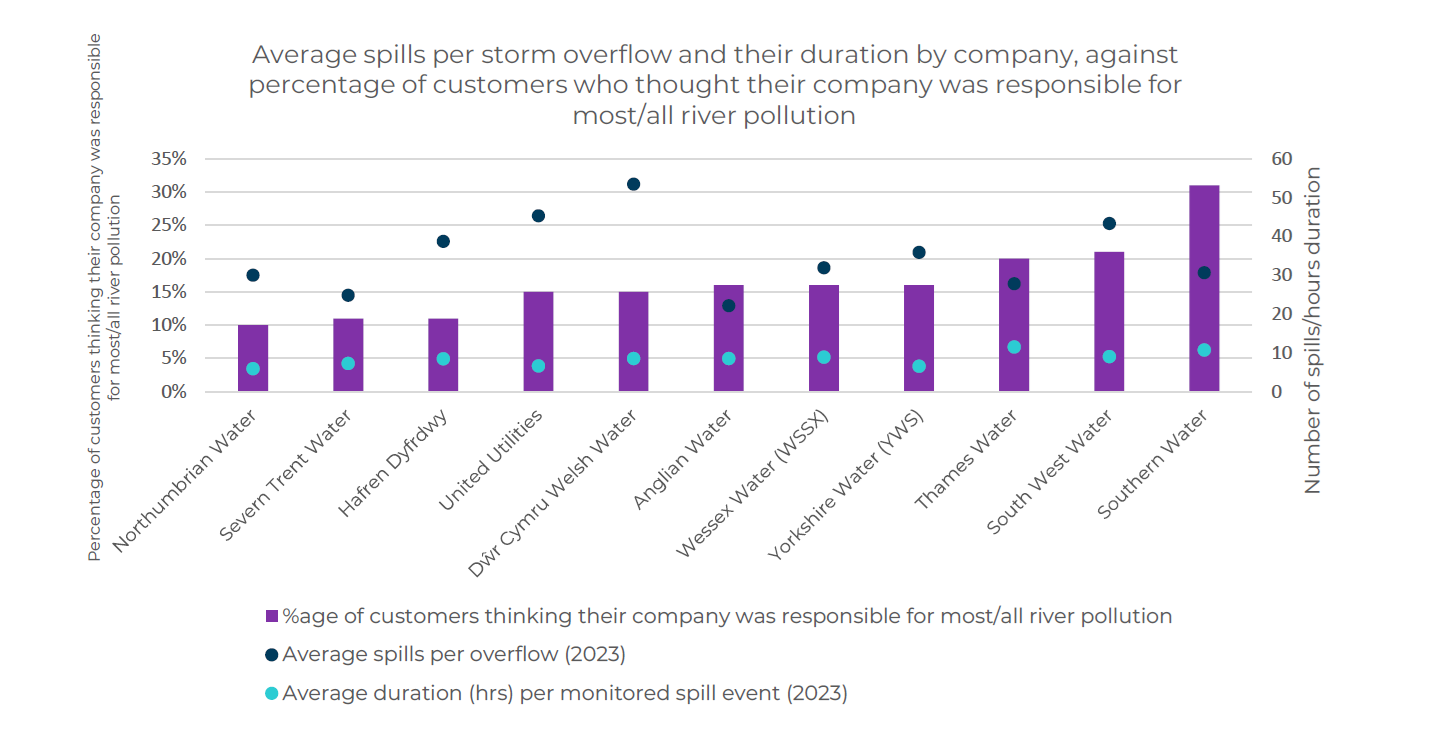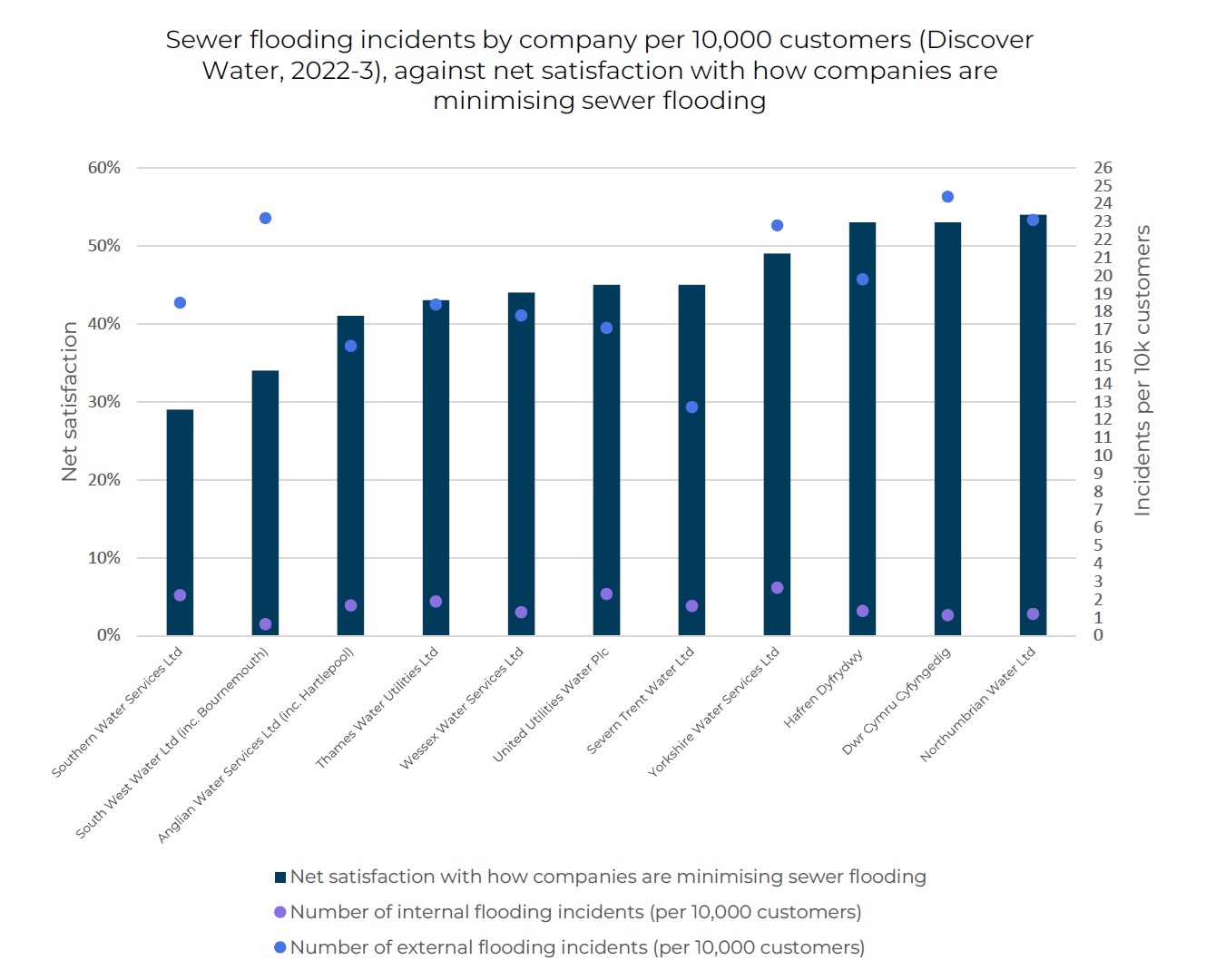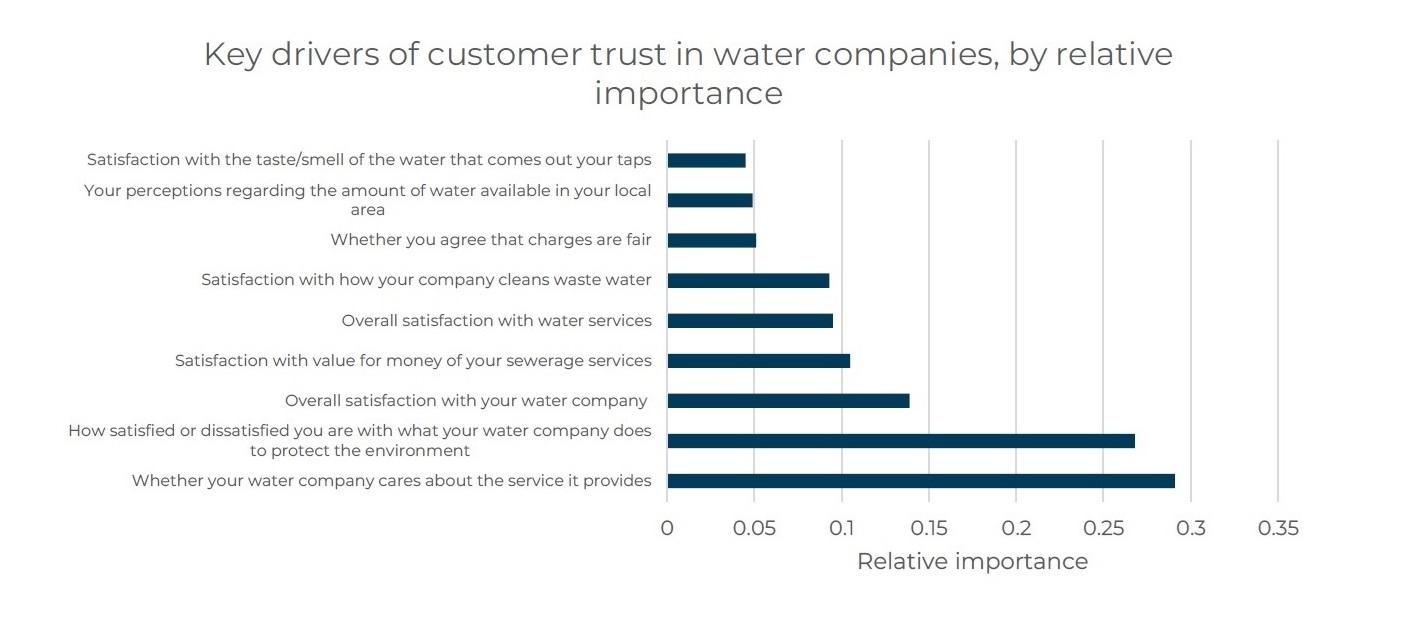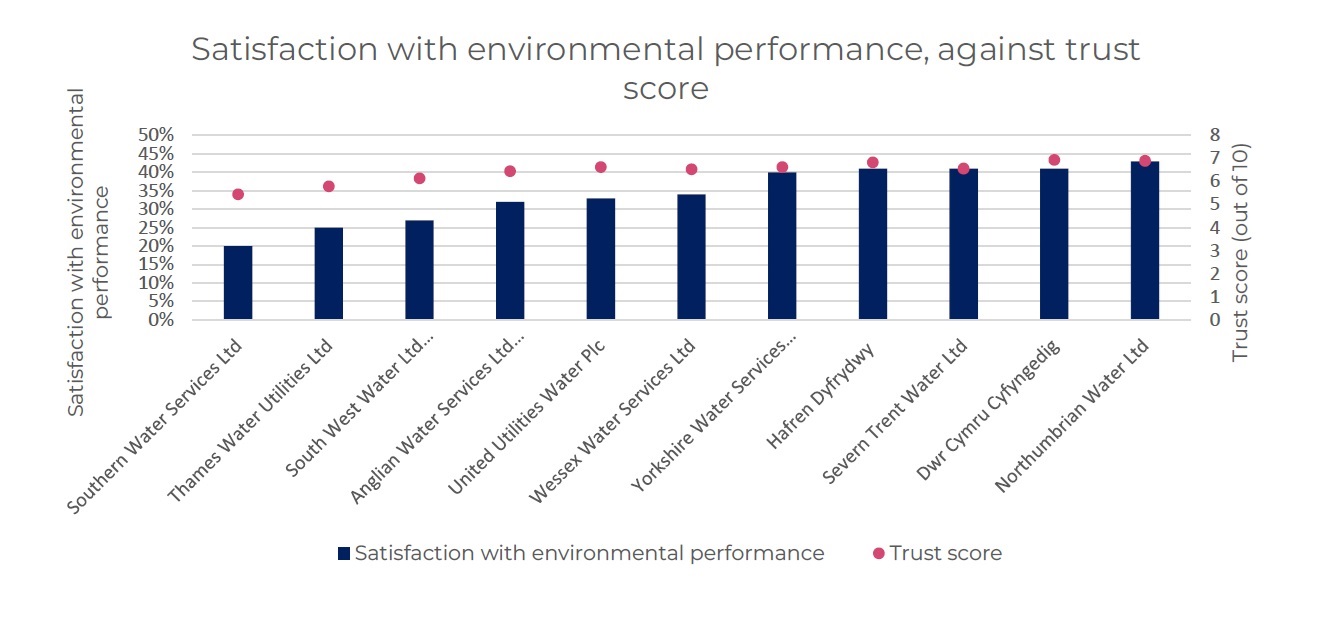Environment Matters: The data from Water Matters 2024

Water Matters report – what are the findings telling us?
It has been a few months since CCW published Water Matters 2024 back in May. As the longest-running in-depth survey of water customers, this research gathers a lot of detail so we are following up with a series of shorter, ‘mini reports’ looking in greater depth at specific themes from the Water Matters 2024 data.
This is our examination of the environment-related findings. We will also be publishing mini reports looking at the messages from Water Matters 2024 around customer contact and bills/affordability – keep an eye out for these in the coming months.
Headline findings
Generally, the picture of this year’s results was a worsening one, with record low scores across a number of areas. This was true of the environmental performance metrics, where we saw the lowest recorded scores in Water Matters’ thirteen year history in both England and Wales:
| Question | 2023 score | 2024 score |
|---|---|---|
| Satisfaction with what the company is doing to clean waste water before releasing it into the environment | England – 53% Wales – 59% |
England – 35% Wales – 41% |
| Satisfaction with what the company is doing to minimise sewer flooding | England – 60% Wales – 67% |
England – 42% Wales – 53% |
| Satisfaction with what water companies do to protect the environment | England – 44% Wales – 56% |
England – 32% Wales – 41% |
| Overall satisfaction with sewerage services | England – 78% Wales – 85% |
England – 63% Wales – 73% |
The summary below looks in more detail at some of these challenging results. Although customer perceptions around environmental performance don’t always match the actual situation, they are important to understand as they are having a severe impact on trust in water companies.
For the past two years, as well as asking customers how satisfied they were with what their company did to protect the environment, we also explored why they answered the way they did.
When we first asked this, the single most common response was ‘too much pollution/sewage is put into water’, with a quarter of respondents citing this issue. This year, by contrast, 40% of survey respondents gave this as their reason – as many as the next six most common reasons combined.
This year, to better understand customer perceptions around river pollution, we asked them how far they thought their company was responsible for any river pollution. Across England and Wales more than half (51%) of people thought their company was responsible for ‘some’ pollution – with 17% thinking it was responsible for either ‘most’ or ‘all’ pollution. Indeed, for customers of Southern Water, this figure was 31%.
These results are a concern and if we map them against figures from the Environment Agency/Natural Resources Wales (pdf) for average spills from storm overflows in 2023, this gives more context. Companies in the south of England, where news coverage has been most intense, were far more likely to be thought to be responsible for river pollution, even when companies elsewhere in England saw a larger number of spills from storm overflows.
Figure 1
Sewer flooding is one of the most traumatic events that water consumers can face and will affect peoples’ perceptions of the performance of their companies.
The chart below (figure 2) tracks customer satisfaction around sewer flooding against 2023 data from Discover Water of the actual number of internal sewer flooding incidents. It shows that peoples’ perceptions in some areas are not necessarily an accurate reflection of company performance.
For instance, while South West Water and Northumbrian Water recorded a very similar number of external sewer flooding incidents per 10,000 customers, South West Water customers were significantly less satisfied (34%) with how their company was dealing with sewer flooding than Northumbrian Water’s (54%).
This is consistent with previous CCW research, as part of our ‘End sewer flooding misery’ campaign, which found that the correlation between customer satisfaction and actual service performance is at best weak.1 Companies need to focus on their customers by providing an excellent service, as well as communicating effectively to help improve perceptions.
Figure 2
View enlarged figure 2 graph (jpg)
1Consumer Council for Water, Under Pressure: the gap between performance and perceptions, p.8
Customers’ trust in their company reached a record low across England and Wales in this year’s Water Matters.
Unsurprisingly, given the prominence of environmental and pollution-related issues in recent news coverage, our analysis shows that satisfaction with companies’ environmental performance was the second largest single factor in determining trust – ahead of other factors like service delivery – and only behind perceptions of how much a company cares about the services they provide.
Figure 3
View enlarged figure 3 graph (jpg)2
This is similar to the findings in our recent joint Customer Spotlight research with Ofwat, which found that less than a quarter (23%) of respondents said they trust water providers to do what’s right for the environment, down from 31% in 2021.
Northumbrian Water, the company with the highest level of satisfaction on this metric, received the highest trust score (43%). Southern Water, with only 20% satisfaction with environmental performance, received the lowest trust score.
Figure 4
View enlarged figure 4 graph (jpg)
2Relative importance is measured by R-square, which tracks the strength of the relationship between a linear model (in this instance, trust) and the dependent variables, on a score between 0-1, where 1 is a 100% correlation
Conclusion
This year, more than ever, our Water Matters report shows how customer satisfaction and trust in their water company is driven – or in this case, undermined – by perceptions of poor environmental performance.
The challenge, therefore, is how companies can start resetting perceptions. Until they improve how they talk to customers about what they are doing to protect the environment – as well as being open when things go wrong, and explaining what steps are being taken to improve the situation – they cannot properly address customers’ concerns.
As we will explore further in the next of these ‘mini reports’, our Water Matters data shows the gaps in customer communication that still need filling. This is important because, as set out above, negative customer perceptions about environmental performance – although sometimes misplaced – are spreading, and as a result are clearly driving down trust levels in the long term.






